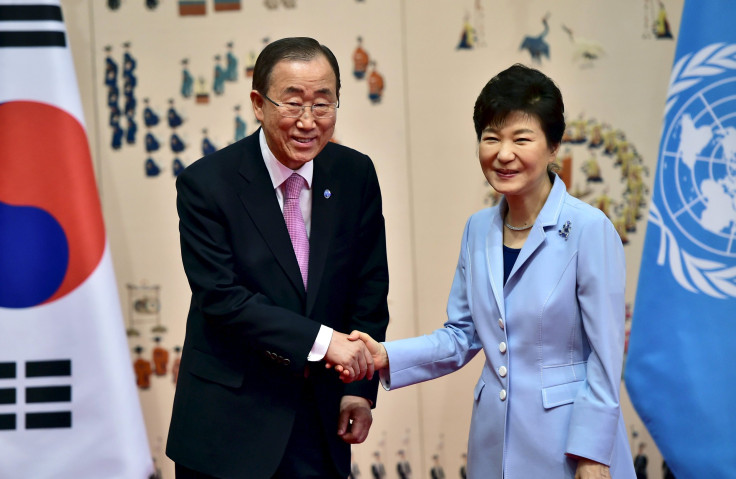North Korea To Boycott South Korean University Games To Protest Opening Of UN Rights Office In Seoul

North Korea has reportedly announced its intention to boycott the upcoming Summer Universiade games, scheduled to be held in South Korea next month, to protest the opening of a new United Nations Human Rights Office in Seoul. The office, which is tasked with monitoring North Korea’s alleged rights violations, is scheduled to open on Tuesday.
North Korea was initially planning to send 75 athletes and 33 officials to the competition for university athletes. However, Pyongyang officials said Monday that the organizing committee received an email about the former backing out.
Kim Yoon-suk, secretary general of the organizing committee, said, according to Yonhap, that the email came from Jon Kuk-man -- head of the North's university sports federation -- on Friday. Pyongyang has blamed Seoul of plotting a conspiracy against it by opening the office.
"We express regret over the email from North Korea," Yoon Jang-hyun, mayor of South Korea’s Gwangju city and the president of the organizing committee, said, according to Yonhap, adding: "But with an open mind, we will wait until the last minute for North Korea to participate."
North Korea also cited the hostile relations between the two Koreas as a reason for boycotting the games, the Associated Press reported, citing an official from the South Korean Unification Ministry. Pyongyang has, several times in the past, criticized military exercises held jointly by the U.S. and South Korea, labeling them a practice for invasion.
In March, North Korea’s Committee for Peaceful Reunification of Korea (CPRK) said that it will not sit back and silently watch the U.N. being opened.
"As soon as the nest for an anti-DPRK (North Korea) smear campaign is in place in the South, it will immediately become the target for our merciless punishment," CPRK had said in March.
"Maneuvers by the U.S. and other hostile forces that are seeking to slander our people-oriented socialist regime and isolate our nation are becoming more vicious," a spokesperson for the North's foreign ministry reportedly said in March. "We firmly reject the so-called resolution adopted at the U.N. Human Rights Council as an outcome of anti-DPRK campaign by hostile forces in the U.S. and again affirm our firm determination to thoroughly destroy the fanatic anti-DRPK campaign."
North Korea boycotted the 1986 Asian Games and the 1988 Summer Olympics held in Seoul but has since attended other events. Pyongyang had also sent a team to the Asian Games in South Korean city of Incheon last year, along with a delegation of high-ranking officials, increasing hopes of reconciliation between the two.
Earlier this month, South Korea successfully test-fired two long-range ballistic missiles in a move to respond to the North’s effort of boosting its nuclear and missile capabilities. In May, North Korea claimed it has successfully conducted an underwater test a newly developed strategic ballistic missile that could be fired from a submarine.
© Copyright IBTimes 2025. All rights reserved.





















